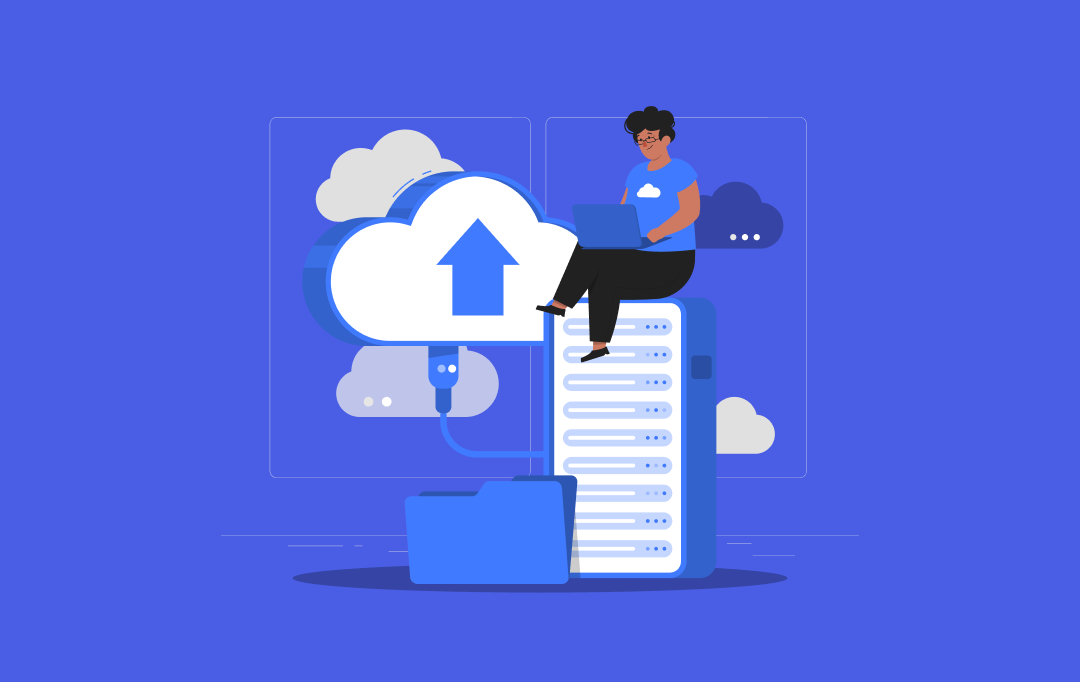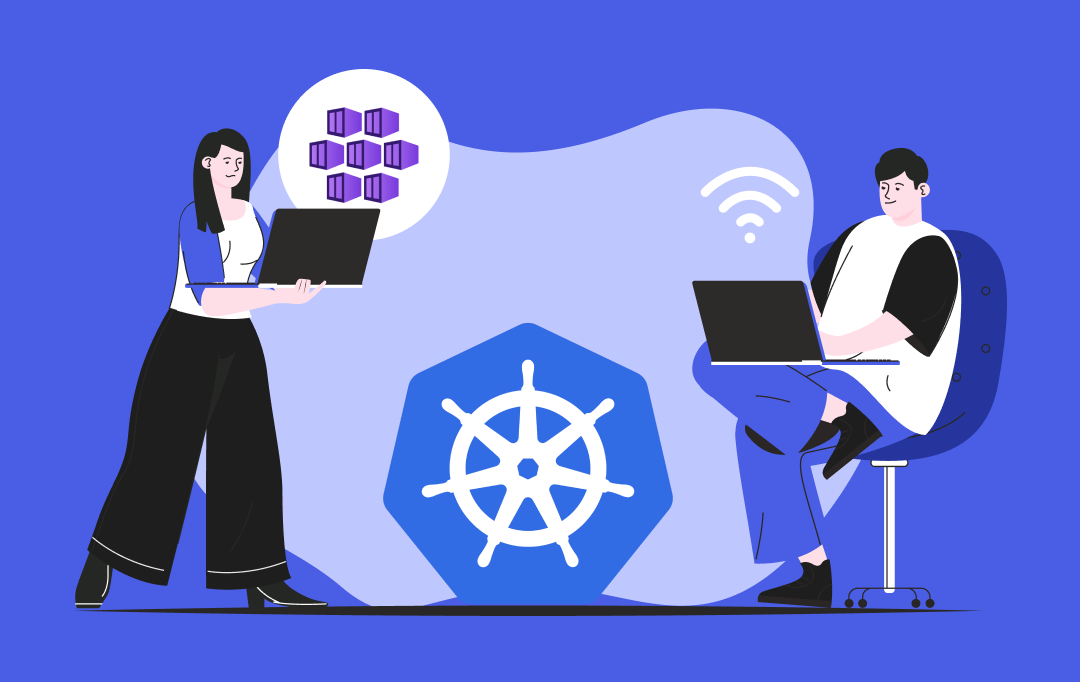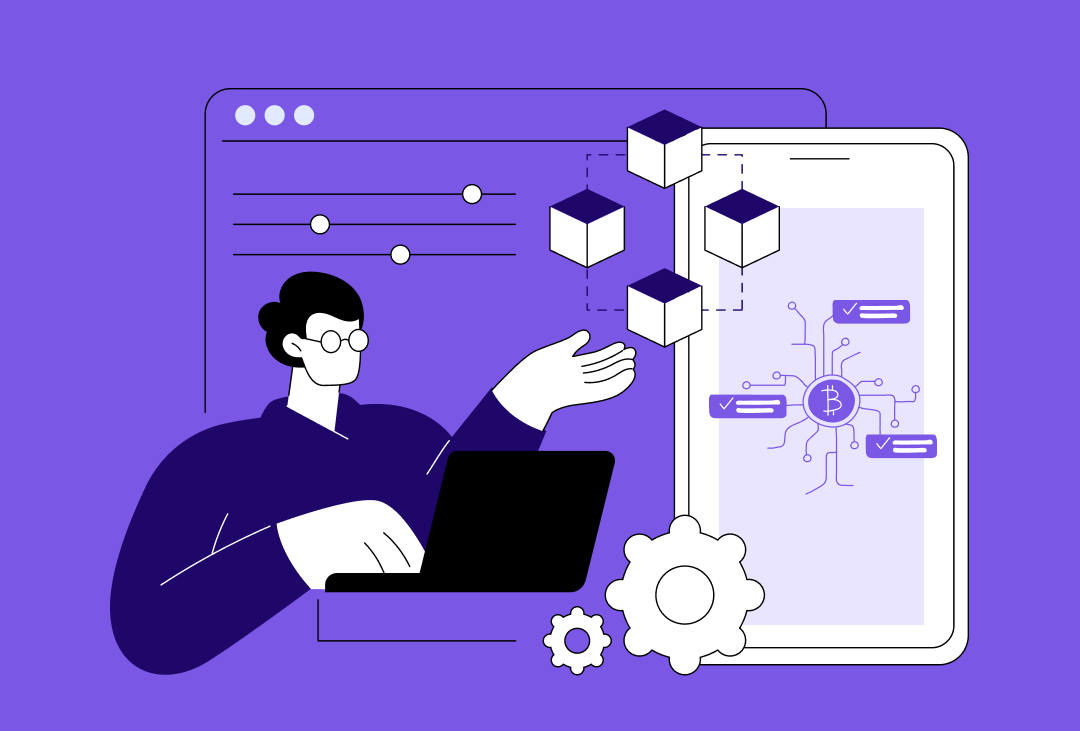- How AI Software Can Help Businesses in Streamlining Their Operations: Understanding the Worth
- AI in Customer Service: Revolutionizing Engagement
- AI in Process Automation: Enhancing Operational Efficiency
- Benefits of AI Software Development for Businesses
- Elevated Customer Service
- Informed Decision-Making
- Efficient Process Automation
- Precise Demand Forecasting
- Enhanced Fraud Detection
- Tailored Marketing Experiences
- Optimal Resource Allocation
- How Every Industry is Utilizing AI in Their Business - A Glimpse
- Healthcare
- Manufacturing
- Cybersecurity
- Logistics
- Finance
- Education
- Tourism
- Sports & Entertainment
- A Step-by-Step Guide to Build AI Software
- Gathering Dataset
- Cleansing and Labeling
- Model Selection
- Ingesting and Training the Model
- Fine Tuning of the Dataset
- Front End Application Development
- Deployment and Further Refinement
- Understanding the AI Software Development Costs
- Factors Affecting the Cost to Create AI Software
- Overcoming Challenges in AI Software Development
- 1. Integration with Existing Systems
- 2. Ethical and Regulatory Compliance
- 3. Data Quality and Availability
- 4. Scalability
- 5. Data Security and Privacy
- The Future of AI Software Development
- How Can Appinventiv Help You Build AI Software
- FAQs
Over the past decade, artificial intelligence and machine learning have gained immense popularity. This surge can be attributed to the remarkable increase in the widespread adoption of cloud computing. These technological advancements have paved the way for the development of impressive AI systems capable of accomplishing extraordinary tasks. From AI-generated content produced with Conversation AI systems to AI-powered art and designs, each day presents new challenges that push the boundaries of these autonomous systems. Understanding how to build AI software has become essential for businesses looking to leverage these powerful capabilities.
Let’s talk about transformative historical innovations like the printing press and the personal computer. Just like these inventions changed the norms of history, AI is reshaping society and has become one of the most vital domains in software development, capable of offering great potential for growth and progress to businesses across multiple niches.
According to a Stanford report, AI has captured the interest of more than 50% of businesses that have seamlessly integrated its capabilities into their operational frameworks. Furthermore, more than 76% of them are looking to amplify their investments in technology throughout the year 2023. These facts prove that AI isn’t just some fancy tech but a powerhouse that could reshape entire industries, enhance efficiencies, and propel businesses towards unprecedented heights.
But before diving into the details, let’s find out why AI software is worth investing in.
How AI Software Can Help Businesses in Streamlining Their Operations: Understanding the Worth
AI software can streamline your business operations, enhance decision-making processes, and expedite the achievement of your business objectives. According to Statista, the AI software market is expected to reach a whopping $2 trillion by 2030. The software, including the likes of chatbots, image-generating AI, and mobile applications, are the key applications of AI in the industry that will be improving the overall financial status of the sector in the coming years.

AI in Customer Service: Revolutionizing Engagement
AI algorithms can easily and rapidly process large volumes of data, surpassing human speed and accuracy. One of the biggest applications of AI is in customer service, where AI tools like chatbots and virtual assistants are enhancing the customer experience. By automating common inquiries, AI frees up human agents to handle more complex issues, increasing overall efficiency and customer satisfaction.
How AI helps customer service:
- AI-driven chatbots improve customer interaction and provide 24/7 support
- Personalized recommendations based on customer data
- Reduces wait times and improves resolution rates
- Automates routine tasks like answering FAQs and processing orders
AI in Process Automation: Enhancing Operational Efficiency
AI software is also pivotal in automating business processes, increasing speed and accuracy in various functions. In process automation, AI tools take over repetitive tasks such as data entry, order processing, and scheduling. This reduces the risk of human error, speeds up operations, and enhances overall productivity.
How AI helps in process automation:
- Automates mundane tasks to reduce operational costs
- Increases efficiency by minimizing errors and delays
- Streamlines supply chains, logistics, and customer service operations
- Improves business scalability without increasing headcount
Considering the array of potential advantages, investing in AI software emerges as a strategic choice for startups as well as enterprises looking to secure a competitive edge in the digital landscape.
Let us now look at the advantages of building AI software for businesses in detail below.
Benefits of AI Software Development for Businesses
Adopting Artificial Intelligence software has brought about transformative benefits across various industries, offering innovative solutions to address multiple challenges. Understanding how to build AI software enables businesses to create customized solutions that address their specific needs. Let us look in detail at why businesses need to create AI software.
Understanding the benefits of hiring an AI consultant early helps organizations design more purposeful and ROI-driven AI systems.

Elevated Customer Service
AI-powered chatbots have revolutionized customer service. These intelligent systems handle routine inquiries, offer product recommendations, and help in issue resolution, significantly improving customer satisfaction and reducing overall costs.
Example: H&M uses an AI-powered chatbot that assists online shoppers, offering personalized recommendations based on previous browsing and purchase history. As a result, H&M has improved engagement by over 30%, and customer satisfaction has increased due to faster response times.
How AI in customer service increases engagement:
- AI chatbots handle customer inquiries 24/7, improving customer satisfaction
- Personalized product recommendations lead to higher engagement and sales
- Reduces human labor costs and improves efficiency.
Informed Decision-Making
AI platforms offer unprecedented data analysis capabilities, giving organizations essential insights to make informed decisions. Using advanced analytics and machine learning, businesses extract valuable information from extensive datasets, optimizing operations and making accurate predictions.
Example: Netflix is a perfect example, using AI-driven analytics to make data-backed decisions on content creation. By analyzing viewers’ watching habits, Netflix can predict what content will resonate most, resulting in an increase in subscriptions and engagement.
How AI enhances decision-making:
- AI analyzes large datasets to extract valuable insights
- Businesses can make better decisions regarding inventory, marketing, and customer preferences
- Predictive models help forecast trends, improving long-term strategic planning
Efficient Process Automation
AI-based business solutions help organizations automate repetitive tasks, allowing the stakeholders to focus on strategic initiatives. Whether it’s about processing data, handling inventory, or maintaining quality, AI-driven automation enhances efficiency, decreases errors, and speeds up processes.
Companies exclusively developed AI agent software to drive automation to its extent. On average, the cost to develop a custom AI agent software might range from $40,000 to $4,00,000 or more, including expenses for data scientists, developers, infrastructure, and ongoing maintenance.
Example: Amazon uses AI to optimize its warehouse operations, with robots assisting in sorting, packing, and even restocking inventory. This AI-driven automation has improved operational efficiency and reduced delivery times, contributing to Amazon’s customer satisfaction.
How AI drives process automation:
- AI handles repetitive tasks like data entry, inventory management, and quality checks
- Companies save time and resources while reducing human errors
- Allows employees to focus on higher-level strategic tasks
Precise Demand Forecasting
AI algorithms analyze historical data, market fluctuations, and external factors to provide accurate demand forecasts and efficient inventory management. This AI-powered demand prediction and inventory optimization create a streamlined supply chain, reducing costs and enhancing customer satisfaction.
Example: Walmart uses AI-driven predictive analytics to forecast product demand across various regions, ensuring that its stores are stocked with the right products at the right time. This has led to significant improvements in inventory turnover rates and minimized stock-outs.
How AI helps with demand forecasting:
- AI predicts future demand trends, helping businesses manage inventory more effectively
- Optimizes supply chains, reducing waste and overstocking
- Improves product availability, leading to better customer satisfaction
[Also Read: How Predictive Analytics Can Streamline Operations and Close Business Gaps]
Enhanced Fraud Detection
AI identifies fraudulent activities by analyzing real-time patterns and multiple data sources. AI-driven fraud detection systems assist organizations in preventing various fraudulent behaviors safeguarding financial transactions and sensitive information.
Example: PayPal uses AI to detect and prevent fraud by analyzing user behavior and transaction patterns. In 2023, PayPal reported a significant reduction in fraud rates, thanks to its AI-powered fraud detection systems that quickly identify suspicious activities.
How AI improves fraud detection:
- AI analyzes large volumes of transactions in real-time to detect fraud
- Detects patterns of suspicious behavior, flagging fraudulent activities
- Protects businesses and customers from financial losses and data breaches
Tailored Marketing Experiences
AI-driven personalization empowers businesses to deliver tailored marketing campaigns and customer experiences, making it one of the sought-after advantages to create AI software.
Example: Spotify uses AI to create personalized playlists for its users, significantly improving user engagement and satisfaction. AI helps Spotify analyze listening history and preferences to suggest new music, increasing the chances of users spending more time on the platform.
How AI personalizes marketing:
- AI segments customers based on behavior, enabling targeted marketing campaigns
- Improves customer engagement by offering personalized content or recommendations
- Enhances user satisfaction by tailoring experiences to individual needs
Optimal Resource Allocation
AI algorithms help optimize resource allocation for industries like transportation, logistics, etc. They allow businesses to make informed decisions, cut costs, and minimize waste by analyzing data and considering factors like traffic patterns, weather conditions, and energy consumption.
Example: UPS uses AI to optimize delivery routes and reduce fuel consumption. By analyzing data such as traffic patterns, weather conditions, and delivery schedules, UPS’s AI system has saved millions of dollars annually by minimizing delivery times and fuel use.
How AI optimizes resource allocation:
- AI helps businesses allocate resources effectively, cutting costs and reducing waste
- Analyzes external factors like weather, traffic, and energy consumption to optimize operations
- Improves efficiency by reducing fuel consumption, time delays, and waste
You may like reading: How much does it cost to build an AI Prompt Generator app like Midjourney
How Every Industry is Utilizing AI in Their Business – A Glimpse
By harnessing the power of AI technology, businesses across multiple industries can gain a distinct advantage, optimize their daily operations, enhance customer satisfaction, and explore new horizons. Here are the multiple use cases of AI software development.

Healthcare
AI analyzes complex medical data, making way for personalized treatments, and offers real-time patient advice with the help of apps. Organizations can enhance patient care by integrating AI-based virtual nurses or chatbots, paving the way for a streamlined medical consult.
Manufacturing
AI powered manufacturing optimizes operations, improves product quality, and detects issues in manufacturing software. Predictive maintenance further helps reduce downtime costs, and computer vision enhances the overall real-time quality control.
Cybersecurity
AI detects network anomalies, enhances multi-layered security, and helps identify threats. Biometric logins and AI-assisted tools are capable of protecting crucial data against cyberattacks.

Logistics
AI enhances logistics with autonomous equipment, predictive analytics, and automation. AI software development solutions in the logistics field are expected to generate an economic value of $1.3-$2 trillion by optimizing supply chains.
Finance
AI is capable of strengthening financial security by recognizing suspicious patterns. For example, using AI-based software was a boon for PayPal, reducing its overall fraud rate to 0.32%. Simply put, the technology can also help in trading and investment management and automates tasks like credit assessment.
Education
AI transforms learning by automating tasks, enabling virtual teachers, and addressing academic challenges. The technology can redefine the learning experience for diverse groups of students across multiple areas of the globe.
Tourism
AI can personalize travel planning, improve customer service, and offer data-driven insights. It enriches the travel experience through booking assistants and service chatbots.
Sports & Entertainment
AI enhances content creation and delivery in media and entertainment. It enables personalized recommendations, content classification, and targeted advertising.
Also Read: Key Questions to Ask Before Investing in Custom AI for Business
A Step-by-Step Guide to Build AI Software
AI-based software development is a complex process that requires expert guidance, especially when learning how to build AI software from scratch. Therefore, it is advisable to partner with a dedicated Artificial Intelligence software development company like Appinventiv that can help put things into perspective while optimizing the AI software development life cycle for you. Here are the step-by-step guidelines to build AI software for your business:

Gathering Dataset
The first stage to develop AI software involves gathering an all-inclusive dataset corresponding to the problem. This dataset should encompass a wide range of examples that the AI will encounter in the real world. This data serves as the foundation for training and assessing the AI model.
Cleansing and Labeling
The dataset is cleansed in this phase to address missing values and inconsistencies. Once cleaned, the data is labeled or annotated, ensuring that each entity is marked with the correct output or category. Annotation plays a crucial role in supervised learning and offers AI-labeled training data.
Model Selection
Once the data is cleansed, it is time to choose an appropriate AI model architecture based on the nature of your business problem. For instance, a machine learning algorithm might be the right choice if you’re dealing with structured data. On the other hand, AI software for image recognition might need a convolutional neural network (CNN).
Ingesting and Training the Model
In this phase of developing AI software, the cleaned and annotated dataset needs to be prepared for training. It should be split into training, validation, and testing sets. The chosen AI model should be trained using the training data while its performance is validated on the validation set. It is necessary to make adjustments to the model parameters and algorithms in order to achieve satisfactory performance.
Fine Tuning of the Dataset
If the model’s performance is not up to the mark, it is time to refine the dataset by adding more examples or fixing any problems that arrive during the training process. This iterative process is capable of making the model better at understanding new and unseen data.
Front End Application Development
Once the data is fine-tuned, the development process to create AI software begins. It involves developing a user-friendly mobile or web app that will interact with your trained AI model. This interface lets users enter information and get predictions from the AI based on the specific app functionalities.
Deployment and Further Refinement
After completing the necessary steps, the AI model and front-end application should be deployed to a production environment. This will allow users to access and utilize the solution. It is important to continuously monitor the model’s performance and gather user feedback. Observing real-world usage patterns can help refine the AI model and the software further.
After looking at the various AI software development steps, let us move ahead and take a good look into the details of the development costs associated with creating AI software.
Also Read: Unveiling Practical Applications of Retrieval Augmentation Generation (RAG) in AI Development
Understanding the AI Software Development Costs
To give you a rough idea, the overall AI software development costs can vary from $50,000 to $300,000. Several factors impact the cost to develop AI software, such as the complexity of the software, features to be integrated, the location of the hired IT consulting firm, the technology stack used, the project delivery timeline, etc.
In simple terms, one can say that the overall software complexity is the most vital factor that impacts the budget of developing AI software. For instance, if you wish to develop AI software that is highly complex AI software and has an intricate feature list, it will ultimately cost you more as compared to simple software with minimum functionalities and features.
| Software Type | Development Cost Estimation | Time Frame |
|---|---|---|
| Simple | $50,000 to $90,000 | 3 to 6 Months |
| Medium Complex | $100,000 to $200,000 | 7 to 9 Months |
| Most Complex | $220,000 to $300,000 | 9+ Months |
Let us look at the multiple factors that affect AI software development costs in detail below.
Factors Affecting the Cost to Create AI Software
The cost to build AI software is influenced by multiple factors ranging from technical to regulatory compliance, user experience, maintenance, etc. Let us understand how they affect the AI-driven software development budget in detail below:

UI/UX Design
The complexity and quality of the UI/UX design significantly influence the cost of developing an AI-based software solution. Creating an intuitive and visually appealing user experience demands additional design efforts and, therefore, directly adds to the overall expenses of AI-driven software development
Platform Selection
The choice of platform for software development, whether it’s iOS, Android, or cross-platform, affects the overall development cost. It is advisable to create AI software with a single platform and then expand to cross-platform software based on market response in order to optimize the initial costs.
Development Team Size
The size and composition of the development team, whether in-house, outsourced, or freelancers, play a pivotal role in determining the AI-assisted software development costs. Different options have varying financial implications. If you wish to streamline your development process and leverage state-of-the-art technology while optimizing the budget, it is advisable to partner with a dedicated outsourcing team like Appinventiv.
Geographical Location
The location of the development agency directly impacts the cost to build AI software. The hourly rate of development varies as per multiple geographical regions across the globe.
App Development Rates as per Regions:
- Eastern Europe: $60 – $70
- Asia: $40 – $50
- America: $100 – $120
- Africa: $20 – $40
Data Sets Costs
Choosing between proprietary and open-source data sets often leads to an increase in the final costs of software development using AI. Open-source datasets are usually free while their processing costs may add up to the budget eventually. On the other hand, procuring proprietary datasets licensing comes at an additional cost and can vary as per the size and quality.
Annotation Costs
The overall annotation costs can also add up the cost of developing an AI software. Several factors determine the cost of annotation such as the complexity of the data and the method used. When it comes to complex data like images, it is necessary to use a careful annotation technique which can result in higher costs. Manual human annotation and automated approaches vary when it comes to the cost and accuracy.
[Also Read: How Much Does It Cost to Build an AI Art Generator App Like Imagine]
Algorithm Complexity and Training
The complexity of AI algorithms, such as deep learning neural networks, affects the development costs to create AI software. Complex algorithms may require more time and computational resources for training, leading to higher costs.
Regulatory and Compliance Requirements
Healthcare, finance, and legal industries have stringent regulatory requirements (HIPAA, GLBA, GDPR, etc.) Developing AI software that adheres to these regulations may require specialized expertise, thorough testing, and documentation, contributing to higher costs.
Also Read- How Much Does it Cost to Develop an AI Testing Tool like Katalon
Cloud Storage
Cloud storage also adds to the overall development costs to create AI software. These costs are influenced by three main factors: data volume, access frequency, and the cloud service provider businesses wish to hire. When it comes to data volume, larger amounts of data will result in higher costs, while frequent access to the stored data will also contribute towards it. The Cloud storage costs vary per different cloud providers; thus, it is crucial to carefully consider and compare the options available.
[Also Read: How Much Does It Cost to Develop a Tool Like Jasper AI?]
Overcoming Challenges in AI Software Development
Developing robust AI software comes with a series of challenges. However, these can be addressed with strategic planning, effective data management, scalable infrastructure, and a focus on ethical practices.
1. Integration with Existing Systems
Challenge: Integrating AI into existing infrastructure can be challenging, as legacy systems may not always be compatible with new AI solutions.
Solution: Opt for modular, adaptable AI systems and conduct thorough compatibility testing to ensure smooth integration. Use APIs for better communication between systems.
2. Ethical and Regulatory Compliance
Challenge: AI implementation requires adherence to ethical guidelines and regulatory standards regarding data privacy and security.
Solution: Stay updated on regulations like GDPR and CCPA. Develop transparent data protocols and accountability measures.
3. Data Quality and Availability
Challenge: AI models need high-quality, unbiased data to function effectively. Poor or biased data can undermine model accuracy.
Solution: Focus on rigorous data collection and preprocessing. Use data augmentation or synthetic data to fill gaps and correct biases.
4. Scalability
Challenge: AI solutions must scale with growing data and user demands without compromising performance.
Solution: Implement scalable architectures and utilize cloud platforms like AWS or Azure to manage increased workloads.
5. Data Security and Privacy
Challenge: Protecting sensitive data from breaches and ensuring privacy is critical in AI deployments.
Solution: Implement encryption and access controls, and perform regular security audits to safeguard data.
The Future of AI Software Development
Looking ahead, the future of AI software development is filled with endless possibilities. AI is evolving quickly, and businesses across all industries are beginning to see its real potential.
In the coming years, one big change we can expect is the rise of autonomous AI. Rather than just following instructions, these systems will be able to learn, adapt, and make decisions on their own. This means businesses will be able to operate with more flexibility and efficiency, handling tasks that were once too complex for automation.
Another area where AI will make a huge difference is in personalized experiences. We’re already seeing AI being used in healthcare, retail, and finance to anticipate customer needs. For example, imagine a healthcare system that can predict your next visit before you even book an appointment or a retail app that suggests products based on your mood, not just past purchases. This kind of personalization in healthcare will make customer experiences feel more connected and relevant.
But with all this progress, there are some challenges to consider, especially when it comes to ethics. As AI becomes a bigger part of our lives, businesses will need to be extra careful about how they use it. They’ll need to ensure their AI systems are transparent, fair, and don’t cause harm or bias.
The good news is that AI is becoming more accessible. With the rise of cloud-based platforms, businesses of all sizes will have access to powerful AI tools. This means that even smaller companies can use AI to improve their operations and compete on a level playing field with larger enterprises.
In short, the future of AI software development isn’t just about more sophisticated technology; it’s about using AI in a way that works with users, not just for them. Businesses that embrace this approach will be the ones leading the charge into the future.
How Can Appinventiv Help You Build AI Software
AI technology is crucial for developing software replicating human intelligence, making smart decisions, and enhancing daily tasks. It is rapidly gaining momentum across industries, leading to improved customer satisfaction and a competitive edge for businesses. AI’s versatility and potential are evident in various sectors, including fintech, social media, telemedicine, etc. It paves the way for new opportunities, fosters growth, and drives innovation. When it comes to robust AI-based software development, professional intervention from experts in the field is rather necessary.
Appinventiv is a dedicated AI software development company with a proven track record of delivering cutting-edge AI solutions to turn your AI vision into reality. Our skilled professionals specialize in leveraging AI’s potential across diverse industrial domains, guaranteeing maximum returns on your investment.
With a deep understanding of AI development and the specific needs of various business verticals, our customized AI solutions are designed to tackle your unique business challenges and opportunities. By partnering with us, you can harness the power of our Generative AI development services to fuel innovation, enhance customer experiences and maintain a competitive edge in today’s landscape.
We recently launched an AI-based healthcare app, YouComm, that allows patients to connect with healthcare nurses with just hand gestures and voice commands! The solution has been adopted by 5+ hospital chains across the US.

Get in touch with us to embark on your AI journey and experience the transformative impact of robust AI solutions that can bring your business visions to life.
FAQs
Q. What will be the future of AI-based software development for businesses?
A. The future of AI is marked by rapid advancements that will redefine its landscape. One can expect significant progress in various domains. For instance, Explainable AI will take center stage, enabling transparent decision-making in fields like healthcare and finance. AI for Edge Computing will also be on the rise, bringing real-time decision-making closer to data sources and reducing cloud reliance.
A report from Grand View Research forecasts that the global AI market will expand at a rate of 37.3% between 2023 and 2030, reaching a value of $1.811 trillion.
Ethical AI Governance will gain prominence, ensuring responsible development, deployment, and usage. AI-augmented creativity is expected to reshape artistic domains, pushing creative boundaries. AI as a Service (AIaaS) will be able to simplify access to AI capabilities, offering ready-to-use resources and frameworks.
Q. How do you create AI software from scratch?
A. Here are some of the crucial steps of creating robust AI software:
Define Objectives: Set clear goals and specify the problem the AI software will address.
Collect Data: Acquire and preprocess relevant data for model training.
Choose Algorithms: Select suitable AI algorithms and models for the task.
Train Model: Train the AI model using the data to optimize its performance.
Validate Model: Evaluate the model’s effectiveness with fresh data.
Deploy Solution: Integrate the trained model into the software application.
Monitor and Refine: Continuously track performance and make improvements as needed.
Connect with experienced AI development experts to learn how to develop AI software for your business today!
Q. What is the average cost to build AI software in 2025?
A. The cost to create AI software varies from $50,000 to $300,000. Several factors further impact the overall cost of development, such as the complexity of the software, the project delivery timeline, the location of the hired software development firm, the UI/UX design of the software, features to be integrated into the software, etc.
Q. How long does it take to build custom AI software?
A. The timeframe to build AI software directly depends on the software’s overall complexity. For instance, a highly complex software with an extensive feature set will take around 9 to 12 months for development. On the other hand, simple software with a minimum feature list will take somewhere around 3 to 6 months. Get in touch with our team to get project timeline details custom to your requirements for software development using AI.
Q. What are the key challenges in AI software development?
A. Developing AI software comes with a set of challenges.
- One of the biggest hurdles is data quality. AI systems rely heavily on clean, unbiased, and accurate data, and often, businesses struggle to gather enough of it or ensure it’s free from bias.
- Another challenge is integration. AI solutions need to fit into existing business systems, and sometimes legacy infrastructure can make that tricky.
- Scalability is also a concern; as AI systems grow, they need to be able to handle increasing amounts of data and demands without losing performance.
- Lastly, there’s the issue of ethical concerns. Ensuring that AI algorithms are fair, transparent, and free of bias is crucial but often complicated.
Q. How can businesses ensure the ethical use of AI in software development?
A. To ensure AI is used ethically, businesses must prioritize transparency. It’s essential to be clear about how data is collected, used, and processed. Companies should also focus on creating fair algorithms that don’t perpetuate bias, ensuring the AI’s decisions are made using diverse and representative datasets.
Establishing an ethics committee can help oversee AI projects and ensure they align with ethical guidelines. Finally, businesses need to stay updated with regulations around AI and data privacy to ensure their practices are compliant with evolving legal frameworks, like GDPR.
Q. What skills are required for AI software developers?
A. AI software developers need a mix of strong technical skills and problem-solving abilities. Key technical skills include proficiency in machine learning, data science, and programming languages like Python, R, or Java. They also need a solid understanding of algorithms and data structures, as these form the foundation of AI development.
Knowledge of neural networks, natural language processing (NLP), and deep learning is also essential for working on advanced AI systems. Apart from the technical side, developers should have critical thinking and collaborative skills to work with cross-functional teams and solve complex real-world problems.
Q. How can AI software development be scaled for large enterprises?
A. Scaling AI for large enterprises requires a thoughtful approach.
- First, businesses should adopt a modular approach to AI development, building systems that can grow with the organization.
- Leveraging cloud-based AI platforms like AWS or Azure allows businesses to scale their AI infrastructure without huge upfront costs.
- Enterprises also need to focus on creating efficient data pipelines that can handle increasing amounts of data and ensure smooth processing as the business expands.
- Finally, ensuring AI system flexibility and using microservices architectures helps businesses scale AI solutions while maintaining agility in operations.
Q. What are the ethical considerations for AI adoption in software development?
A. When adopting AI in software development, businesses must address several ethical considerations.
Bias in AI models is one of the primary concerns. AI systems must be trained on diverse and representative datasets to avoid discrimination. Businesses should also be transparent about how AI makes decisions, providing clear explanations for automated decisions, especially when they impact people’s lives.
Privacy is another issue. Businesses need to ensure that data used for AI is collected and stored securely, and that users’ privacy rights are respected.
Lastly, AI systems should be designed to be accountable, meaning that businesses must be responsible for the outcomes of their AI solutions and ready to address any issues that arise from their use.


- In just 2 mins you will get a response
- Your idea is 100% protected by our Non Disclosure Agreement.
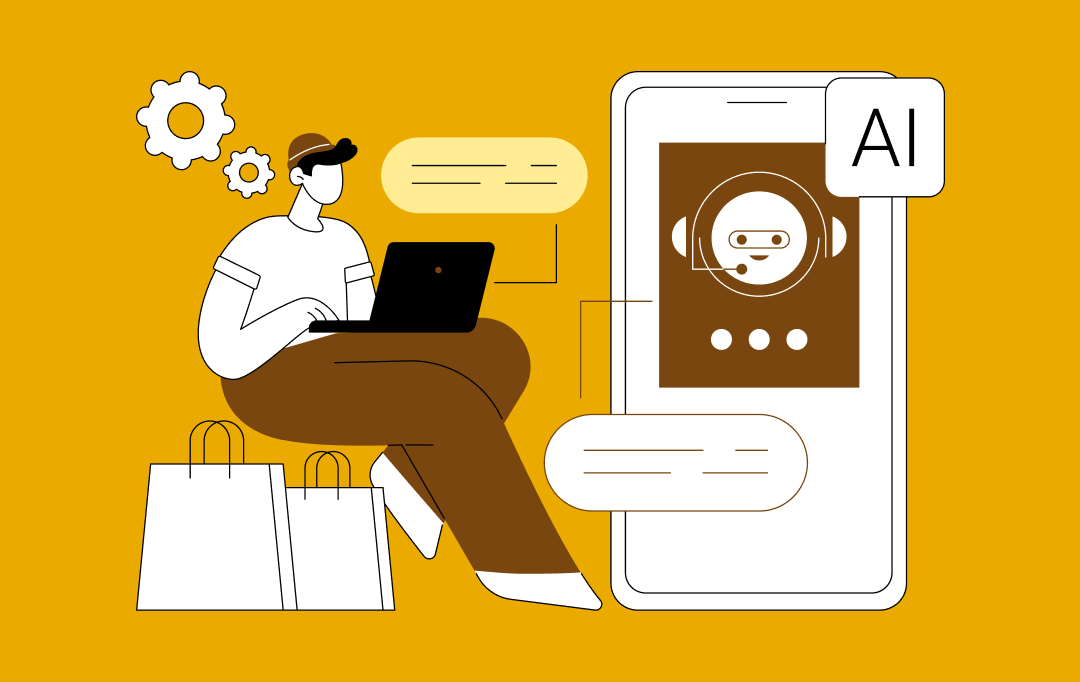
How AI Chatbots for eCommerce are Driving 3x More Sales in 2026
Key takeaways: AI chatbots for eCommerce have a direct impact on revenue. When aligned with buying intent, they lift conversions, increase order value, and drive repeat purchases. The strongest impact comes from personalization and guided selling, helping shoppers decide faster and buy with greater confidence. Abandoned cart recovery is a major revenue driver in 2026.…

AI-Powered Booking Optimization for Beauty Salons in Dubai: Costs, ROI & App Development
Key Highlights AI booking optimization improves utilization, reduces no-shows, and stabilizes predictable salon revenue streams. Enterprise salon platforms enable centralized scheduling, customer insights, and scalable multi-location operational control. AI-enabled booking platforms can be designed to align with UAE data protection regulations and secure payment standards. Predictive scheduling and personalization increase customer retention while significantly reducing…
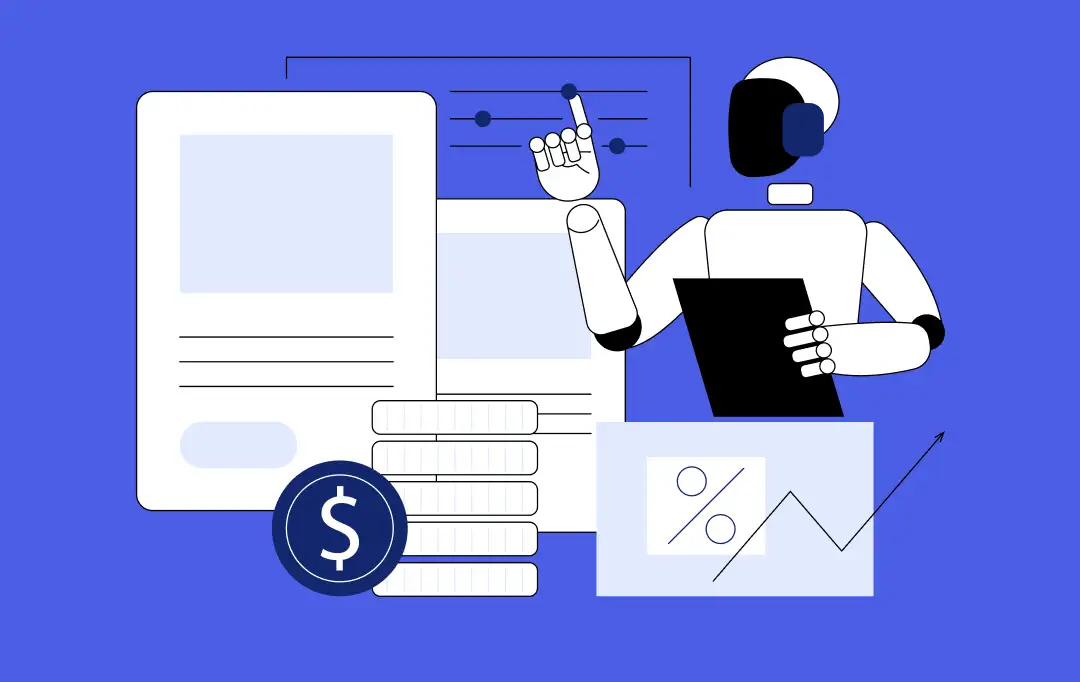
Data Mesh vs Data Fabric: Which Architecture Actually Scales With Business Growth?
Key takeaways: Data Mesh supports decentralized scaling, while Data Fabric improves integration efficiency across growing business environments. Hybrid architectures often deliver flexibility, governance, and scalability without forcing premature enterprise-level complexity decisions. Early architecture choices directly influence reporting accuracy, experimentation speed, and future AI readiness across teams. Phased adoption reduces risk, controls costs, and allows architecture…




















